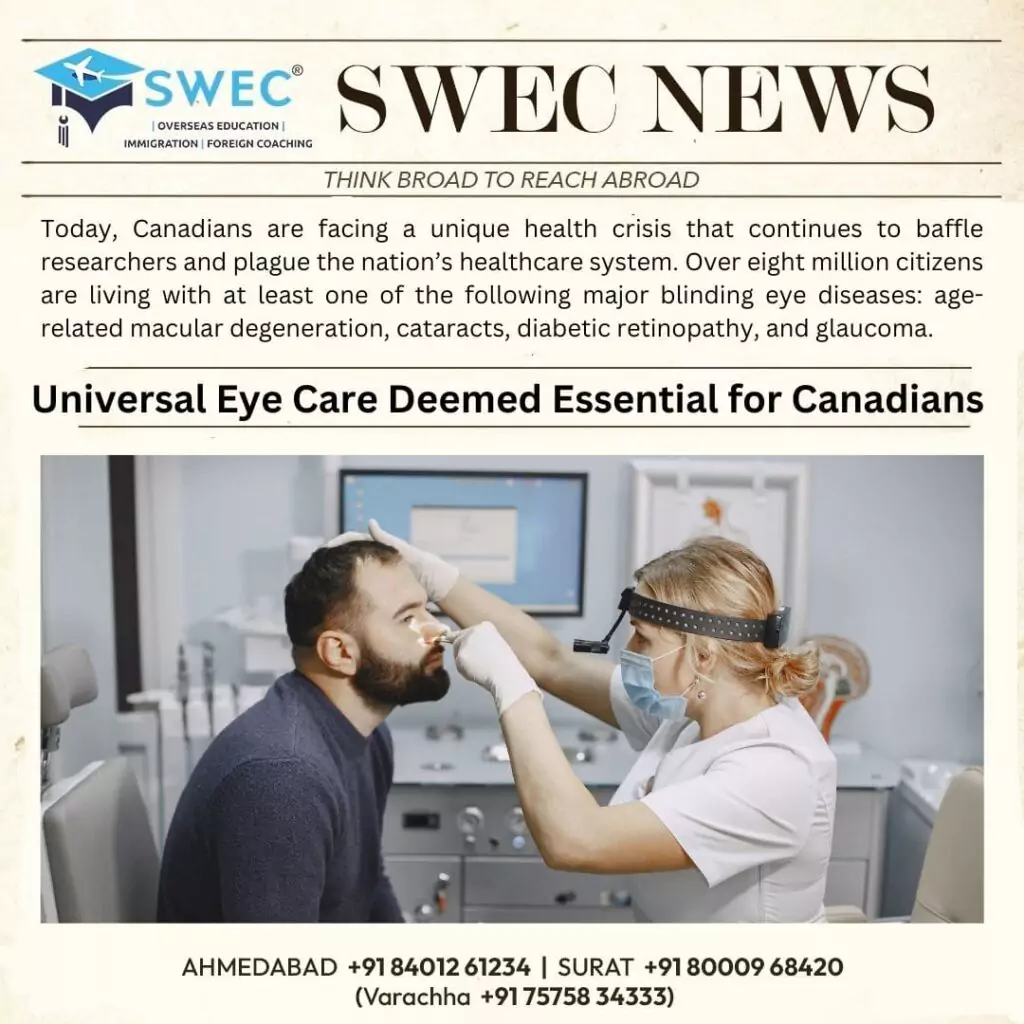
Universal Eye Care Deemed Essential for Canadians
Today, Canadians are facing a unique health crisis that continues to baffle researchers and plague the nation’s healthcare system.
Over eight million citizens are living with at least one of the following major blinding eye diseases: age-related macular degeneration, cataracts, diabetic retinopathy, and glaucoma.
But despite 75% of visual impairment being avoidable when detected and treated early, over 1.2 million Canadians are living with vision loss.
This has spurred the country’s vision health stakeholders to urge the Government of Canada to support eye care in its federal budget, seeing as the total cost of vision loss in Canada was $32.9 billion in 2019 and is expected to balloon to $56 billion in 2050.
More importantly, blindness can negatively impact a person’s financial health and sense of independence.
So, if a simple and typically inexpensive eye exam can prevent a debilitating and expensive condition such as blindness, why are more and more Canadians suffering from it?
There are various factors at play here, such as the ripple effects of the global pandemic, accessibility to doctors, and the country’s rapidly aging population.
There is a clear and immediate need to bridge the gap between those at risk for vision loss—older adults aged 55 and above—and the eye care programs they sorely need.
Vision issues faced by Canadians
Most of Canada’s population is concentrated in urban areas, resulting in an uneven distribution of eye doctors.
A 2020 study found that the average distribution of optometrists was only 1.70 per 10,000 people.
In some remote areas, low vision care was attributed to a lack of access to government-insured eye doctors.
Because optometrists can detect and diagnose vision problems before they progress, it’s critical to address this issue.
That said, even adding more eye doctors and access to available coverage in certain areas may not help matters.
According to Clearly’s study on Canadian vision care, almost half of Canadians regularly experience vision issues, but 34% of Canadians are long overdue for an eye exam.
Their reported symptoms included blurred vision, floaters, and glare at least a few times per month.
This is concerning because plenty of eye diseases can progress without one noticing vision changes; seeing actual changes in vision merits an eye exam all the more.
However, there is an even more vulnerable group that the health sector needs to pay closer attention to: Canadian immigrants.
Immigrants and eye care
There are several reasons Canadian immigrants, in particular, need eye care. First, it’s important to note that diabetes is linked to vision loss, particularly macular edema and retinopathy.
Second, the number of Indians who became Canadian permanent residents increased by 260% from 2013 to 2022.
In a study of over 1.7 million immigrants to Canada for ethnic differences in prediabetes incidence, South Asians were the highest risk group, with 47.9% incidence in the 50-64 year age range.
That means this ethnic group has a significantly higher risk of eye problems among the current pool of immigrants.
Therefore, governments should not only make blanket changes to eye care policies but also provide special attention to minorities and the Canadian provinces where their population incidence is higher.
Some provinces give Canadian immigrants access to primary healthcare as soon as they land, while in major cities, it may take up to three months.
Nevertheless, it appears that access is not a concern. New research published in BMC Primary Care has found that recent immigrants are less likely to have a family doctor, which means a lack of familiarity in a new country may impact people’s willingness to see even a general physician, much less an eye doctor.
To avoid further burdening the healthcare system and worsening the country’s vision crisis, addressing seemingly minor barriers like language, transportation, and a sense of belonging may be necessary to encourage immigrants to prioritize their eye health.
Source: https://immigrationnewscanada.ca/universal-eye-care-deemed-essential-for-canadians/




